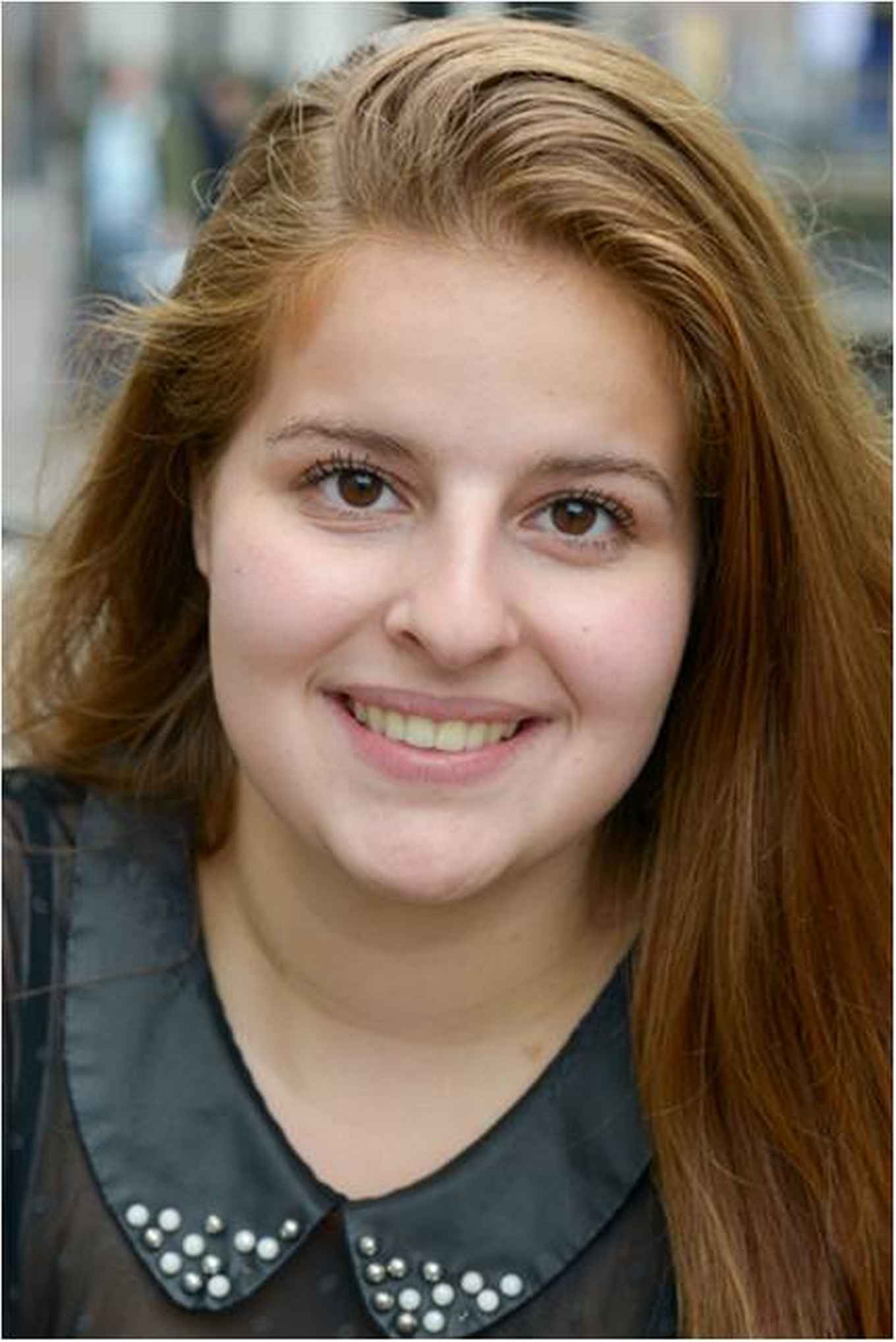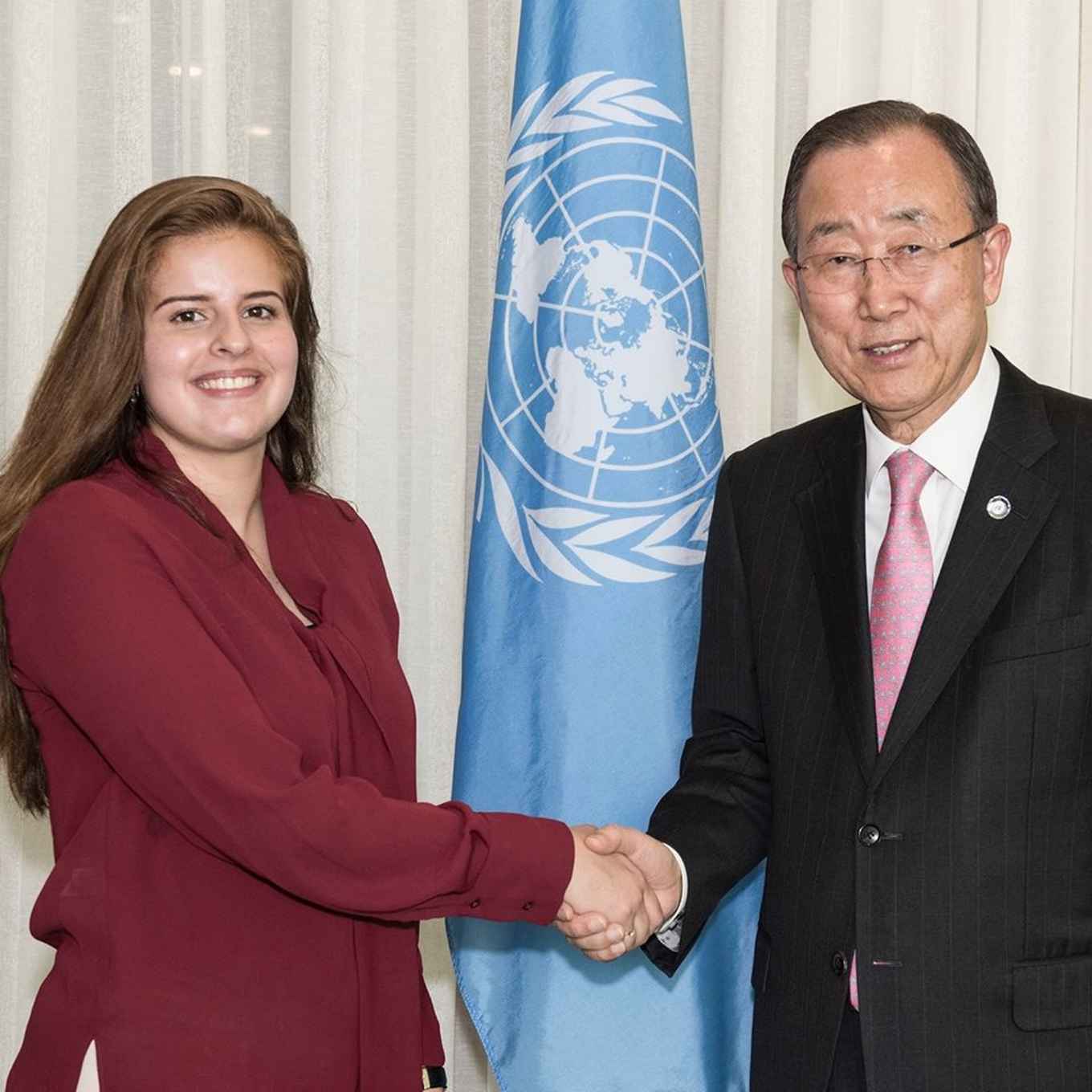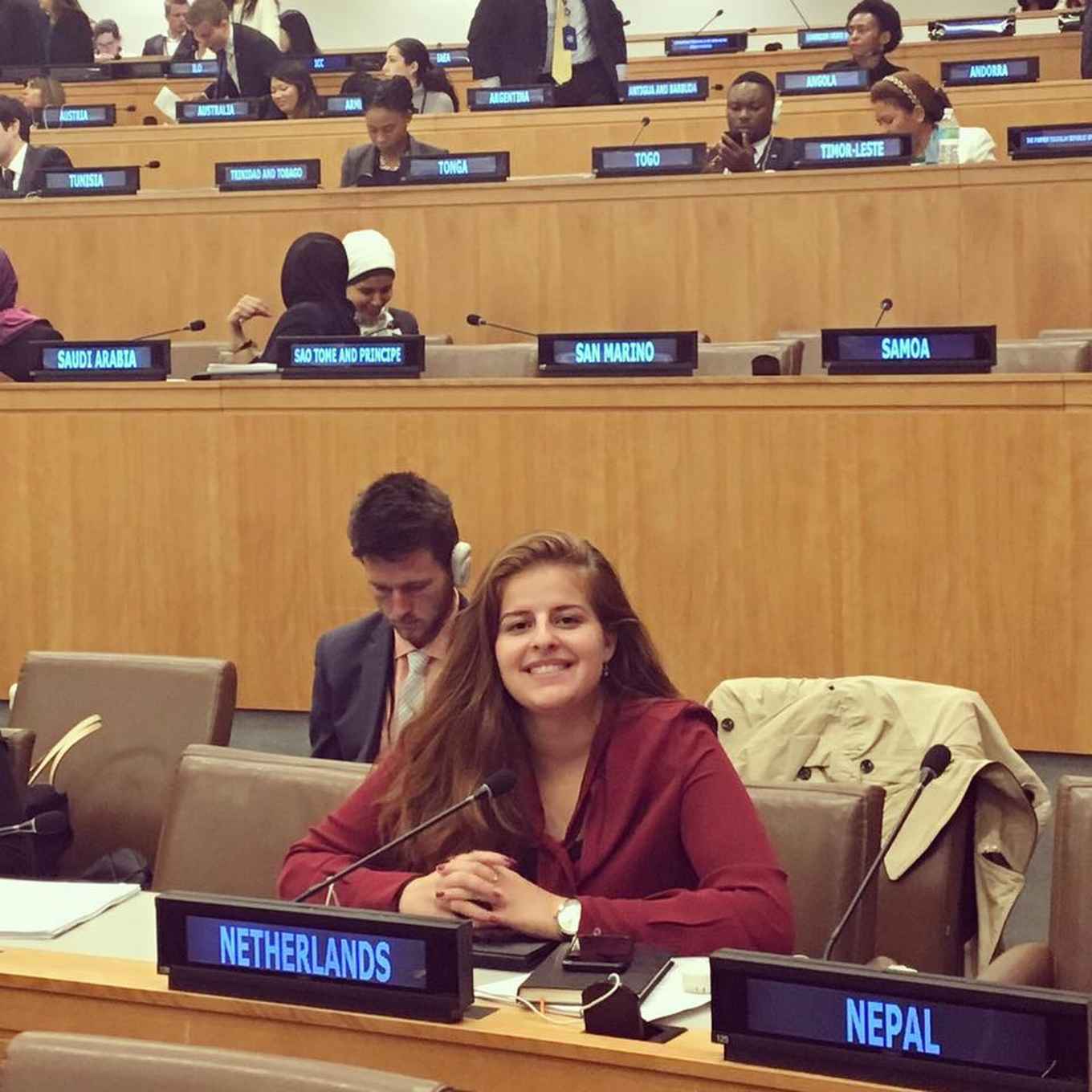Interview: AUC alumna Sahar Afzal nominated for ECHO Award
Sahar Afzal, the voice of many young people, has been nominated for an ECHO Award
18 September 2019

ECHO Awards
The ECHO Award is a prize awarded to excellent students with a multicultural background in the Netherlands. The award is given by the Expertisecentrum Diversiteitsbeleid (Centre for Diversity Policy) in higher education. Their mission is to recognise and support the accomplishments of students with a non-Western background in the Netherlands who are making a distinguished impact at their institution or in their community. The goal of the ECHO Award is to put a spotlight on the individual successes of these students. Winners are rewarded with a fully organised summer course at the University of California, Los Angeles (UCLA) in the United States.
In addition to Sahar Afzal, fellow UvA student Ahmed Bayoumy was also nominated for the ECHO Award finals. Both students will present their plans to the jury on 26 September 2019.

Letters to court
Next to her studies, Sahar Afzal also serves as a board member for the Dutch branch of the United Nations Entity for Gender Equality and the Empowerment of Women, also known as UN Women.
Where did Sahar discover that she enjoyed helping others to express their views?
Sahar: "At my secondary school, the Berlage Lyceum in Amsterdam, there were children from many different countries. Some of them didn't even have a residence permit. I helped undocumented children write letters to court, which meant that I was already thinking about how to use my talents to help others from a relatively young age."
UN youth representative
Sahar graduated cum laude from her Bachelor’s degree programme in Liberal Arts and Sciences at Amsterdam University College this past summer, but her efforts to help others during her secondary education unfortunately took a toll on her own results: she failed her pre-university examination, eventually obtaining her diploma through an adult education programme.
Sahar is convinced that you learn just as much or even more through experiential learning opportunities outside of the classroom.
Sahar: "Despite my personal setback of failing to obtain that diploma, I still wanted to help others and I was looking for a way in which I could contribute to society. After I decided to run in the election for the United Nations youth representative, I was elected following many rounds and was able to serve as the Dutch youth representative for the UN over the course of 2.5 years. In my time as a representative, I talked with over 10,000 young people from all over the world about the role of young people in policy processes, children's rights, radicalisation, sustainability, democracy and emancipation."

Differing opinions
Sahar was elected to be a UN youth representative at an interesting time, with a refugee crisis reaching a peak in 2015 and 2016.
Sahar: "At times, I would speak with groups who held very different opinions. What do you do when students who are training to be security guards say that "we should ship all refugees off to an island so they can't assault our daughters here"? This issue taught me a lesson in mental resilience, but it especially taught me to look for the reasons why people might say certain things. Simply confronting them will not solve everything."
The ECHO Award will go to someone who builds bridges between different worlds, and Sahar believes that she can bridge the gap between young people and policymakers on both the national and the international level. Born and raised in Amsterdam from a Dutch mother and a father from the border region between Pakistan and Afghanistan, she grew up as part of two very different cultures.
Sahar: "As a result, I learned that there are two sides to each story. My parents had me watch not just Dutch news, but also international programmes that showed issues from a different or wider perspective."
Battle for accessibility
When asked what she would do to improve inclusion and diversity at the UvA further, she responded:
Sahar: "I see diversity and inclusion as broad subjects that have common ground in the topic of accessibility. For instance, Amsterdam University College would be much more inclusive if it didn't ask for double the tuition fees. While there are certain grants to compensate, those grants are also open to diplomat's children, so to speak."
Sahar also wishes to advocate more inclusion by making it easier for students to develop themselves outside of their studies.
Sahar: "I think that an excellent student has to be someone who also contributes to a better society. Good grades alone are not enough. Of course, this situation would require you to step out of your comfort zone and set aside some time, so any help that the university could provide would be wonderful. Some lenience in the time that it takes to complete your Bachelor's degree would be a good start. Furthermore, I would like to take an even broader look at diversity and include political diversity in this topic. I feel that there should be more emphasis on the diversity of political preferences and the ability to discuss them freely in a city such as Amsterdam."
Experimenting with a quota
Of course, the topic of diversity also includes the ratio of men and women in high-level positions. What is Sahar's view on this matter?
Sahar: "Although there are many more women than men attending university, the percentage of female professors is still quite low. To change this, it's important that the university doesn't create selection committees that only reflect existing leadership. That is why I find the establishment of a quota at Eindhoven University of Technology so interesting. While people are always a bit scared of the word 'quota', there have been many studies which prove that it has an impact and that such temporary measures can safely be discontinued after a few years. I am curious to see what the results in Eindhoven will be. Diverse teams work better. As far as I'm concerned, I would be happy for Amsterdam to experiment with a quota as well."
Keeping eyes and ears open
As an ECHO finalist, Sahar will automatically become ECHO ambassador as well, meaning that she'll continue to work to inspire young people towards excellence in their work and their studies. Sahar looks to inspire young people by engaging them in conversation and helping to build bridges.
Sahar: "It would be so cool if a young person were to say: 'She is someone who can really bring about change, has connections, knows what she wants and takes me seriously by talking with me instead of about me." People in top positions are sometimes accused of living in an ivory tower. If I manage to land one of those positions, I aim to be keeping my eyes and ears wide open."
Text by Elize Fallon